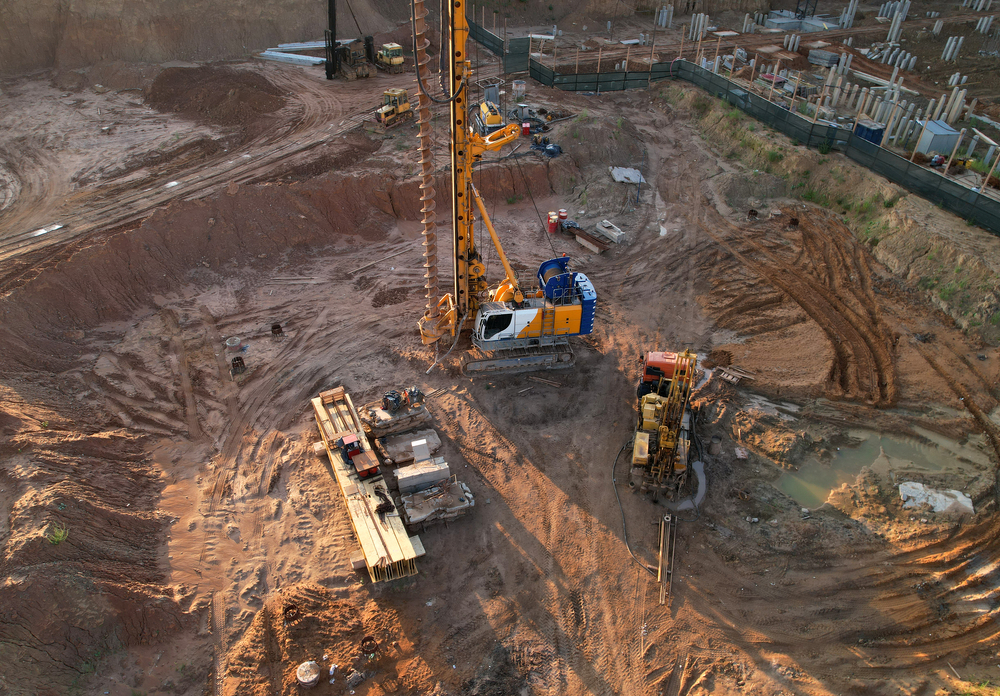Geotheta Things To Know Before You Get This
Geotheta Things To Know Before You Get This
Blog Article
The Main Principles Of Geotheta
Table of Contents8 Simple Techniques For GeothetaHow Geotheta can Save You Time, Stress, and Money.Geotheta Can Be Fun For AnyoneGetting My Geotheta To WorkNot known Details About Geotheta

With experience and a proven performance history, you can proceed to senior design roles, job management settings, or also start your very own working as a consultant. Constant specialist development and staying up-to-date with the most up to date sector patterns and modern technologies are necessary for career development in this vibrant field. A career in geotechnical engineering offers a diverse variety of projects and difficulties, making sure that no 2 days are the exact same.
In the office, you will examine information, prepare records, and team up with various other professionals - https://geotheta.wordpress.com/2024/08/02/unlocking-the-secrets-of-geotechnical-engineers-the-geotheta-advantage/. Fieldwork involves website check outs, collecting dirt examples, carrying out geotechnical examinations, and supervising building and construction tasks. Depending on the job, you may function on-site in differing weather problems and take a trip to different areas within the UK. As a geotechnical designer, your tasks might include website characterization, slope stablizing design, foundation design, soil enhancement strategies, and geotechnical instrumentation and surveillance.
Not known Facts About Geotheta
You will also interact with clients, contractors, and regulative authorities to resolve any kind of problems and ensure compliance with sector standards and laws. Geotechnical engineering can be tough, as it entails dealing with complicated soil problems and dealing with potential risks to human life and framework. Nonetheless, effectively resolving geotechnical problems and adding to the growth of risk-free and sustainable frameworks can be greatly fulfilling.
If you're taking into consideration an occupation in geotechnical engineering, here are some valuable pointers to aid you accomplish success: Networking is vital for profession development in any field, and geotechnical design is no exemption. Joining specialist associations, such as the Institution of Civil Designers (ICE) and the British Geotechnical Association (BGA), can offer networking possibilities, access to industry occasions and conferences, and valuable resources for specialist development.

Developing solid social and management skills will certainly set you apart and open doors to career advancement chances - https://www.startus.cc/company/geotheta. Getting started on web link a career as a geotechnical engineer in the UK uses exciting prospects and the opportunity to contribute to the growth of the built atmosphere. By adhering to the instructional paths, acquiring needed licenses and accreditations, and continually refining your skills, you can develop a successful career in this vibrant area
Some Known Details About Geotheta
When a person asks what I do and I tell them that I am a geotechnical engineer, I usually obtain the follow-up question of, "What is that?" Geotechnical engineering is a specific branch of civil design that handles the science of the technicians of dirt and rock and its applications.
In this post, I will certainly discuss the duty of geotechnical design and the sorts of issues geotechnical engineers solve. Geotechnical engineers (geotechs) are associated with virtually every kind of civil design task. Nevertheless, every structure is supported by soil or rock unless it is floating, flying, or dropping.
Geotechs are usually most entailed at the start of a project. A few of the jobs that a geotech might be accountable for are checking out subsurface problems, establishing required laboratory testing of dirt and rock, translating the subsurface expedition outcomes, and writing reports that record the website problems and supply referrals for foundations, fill specifications, incline stability, etc.
Often, individuals do not wish to pay for geotechnical reports or layout on smaller jobs, but the price of a specialist is typically much less costly than spending for substantial foundation repair services in the future. Geotechs are associated with the design of freeway cuts and fills, superficial and deep foundations, earth retaining structures, embankments, tunnels, land fills, dams, incline stablizing systems, and sidewalk subgrades.
The Buzz on Geotheta

Oftentimes, things that may not seem vital become vital years later when concerns develop. Tailings Engineer. One last thing to remember: geotechnical engineering is married to geology. No issue just how terrific your engineering know-how is, if something crucial is missed in the geologic characterization at a site, your know-how might not save you
Vance, P.E., graduated from Marshall University with a Bachelor of Scientific Research in Design and received a Master of Science in Civil Engineering from the University of Illinois at Urbana-Champaign. He is presently pursuing a Ph. D. in Geological Engineering at Missouri College of Scientific Research and Technology. Jese works as a geotechnical designer that specializes in geohazards.
Getting The Geotheta To Work
Jese lives in West Virginia with his other half and kid. He delights in crawling around on any kind of landslide he can discover and spending time fly fishing on the water. I wish you appreciated this week's article by guest writer Jese Vance.
Anthony Fasano, P.E.Engineering Management Institute Writer of Engineer YourOwn Success. Civil engineering is the professional design self-control that handles the design, building and construction and upkeep of public and personal infrastructure within the native environment. Geotechnical design is a self-control within civil engineering that concentrates on the habits of natural geological products in engineered systems. Geotechnical engineers acknowledge that soil and rock are the cheapest and most plentiful building products in the world, and consequently play a significant function in the construction and efficiency of every sort of civil design structure.
Report this page